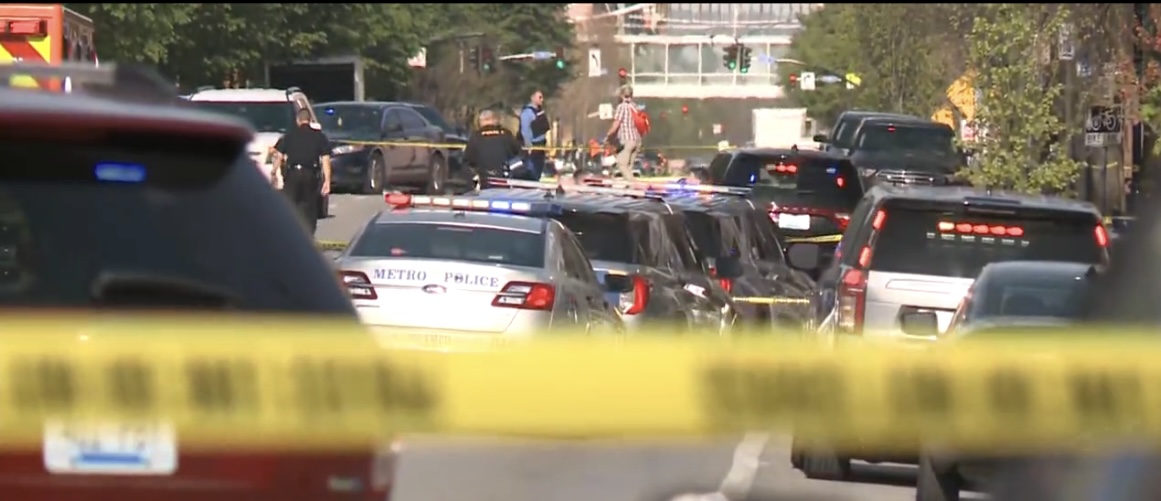
There's no substitute for the real thing.
We’ve heard the old adage in a variety of contexts.
We all agree — in principle if not in practice — about the importance of laws securing the public’s right to hold public agencies and officials accountable through their public records.
We may, however, disagree on the need to look away when disclosure of graphic video offends our sensibilities and/or threaten to further traumatize survivors and surviving family members.
Kentuckians have not looked away in the past. We must not look away now.
Following the April 10 mass shooting, more than one media source and/or reporter suggested that we spare ourselves the horror of the events. They elected not to share the graphic public records or offered reporters’ descriptions as an alternative to viewing them ourselves. These editorial decisions and reporters' suggestions were, no doubt, well-intended.
Certainly, we can, and should, exercise personal judgment in deciding whether those sights and sounds are too painful for our individual psyches. A warning to the wise should suffice.
But media sources and reporters do us no favor by declining to publish those public records, or offering a narrative description as an alternative to viewing the public records themselves, experiencing our own reactions, and engaging in independent critical analysis to arrive at our own conclusions.
In 2009 and 2010, Senator John Schickel proposed legislation that would have barred release of 911 calls. Instead of audio recordings, Schickel’s failed bills would have permitted the release of written transcripts of the calls only.
https://apps.legislature.ky.gov/record/09rs/SB30.html
https://www.themountaineagle.com/articles/lawmaker-pushes-to-keep-911-c…
Kentucky’s press vigorously (and successfully) resisted Schickel’s efforts, defeating the bills in both sessions. A written transcript rarely conveys the essence of a tragedy.
In 2021, Rep. Chris Freeland secured passage of a new exception to the open records law for “photographs or videos that depict the death, killing, rape, or sexual assault of a person." Ironically, Freeland's efforts coincided with release of video of the murders of George Floyd, Ahmaud Arbury, David McAtee, and Rayshard Brooks, among others. These videos and photos revealed, far better than the written word, whether law enforcement officers and prosecutors did, or did not, discharge their duties and did, or did not, violently abuse the public trust.
https://apps.legislature.ky.gov/law/statutes/statute.aspx?id=51393
https://www.tribunecourier.com/news/ky-house-passes-bailey-holt-preston…
https://m.facebook.com/story.php?story_fbid=857779554768768&id=41965017…
On Monday, public records confirmed public servants’ quick response, courage, and commitment to duty over the natural instinct for self-preservation. Public records do so just as often as they confirm public servants’ abject failure to discharge their duties (or worse) — as, for example, in Uvalde, Texas.
Kentucky’s open records law has recognized these extremes, as well as the potential for re-traumatization of survivors and surviving family members, in the “privacy exception”
that has existed in the law since its enactment in 1976.
https://apps.legislature.ky.gov/law/statutes/statute.aspx?id=51393 (Subsection(1)(a))
Our law recognizes the need to ensure effective law enforcement in cases where public agencies can identify actual harm to an investigation or prosecution from premature disclosure, in the “law enforcement” exception that has also existed since 1976.
https://apps.legislature.ky.gov/law/statutes/statute.aspx?id=51393
(Subsection(1)(h))
Our law incorporates external confidentiality provisions scattered throughout state and federal law that are aimed at protecting, for example, patient privacy in medical records, juvenile law enforcement records, and student privacy in education records.
https://apps.legislature.ky.gov/law/statutes/statute.aspx?id=51393
(Subsection (1)(k) and (l))
But now, as never before, we must confront reality — grim though it may be. Mass murder is not bloodless. Violent death is not pretty.
We must not anesthetize ourselves from the horror of mass shootings that confront us daily. These shootings are cruel, barbarous, bloody, and intolerable.
We must look that horror in the eye if we ever hope to shake public officials out of their complacency, their excuses, and their feeble explanations for grotesquely clinging to the status quo.


